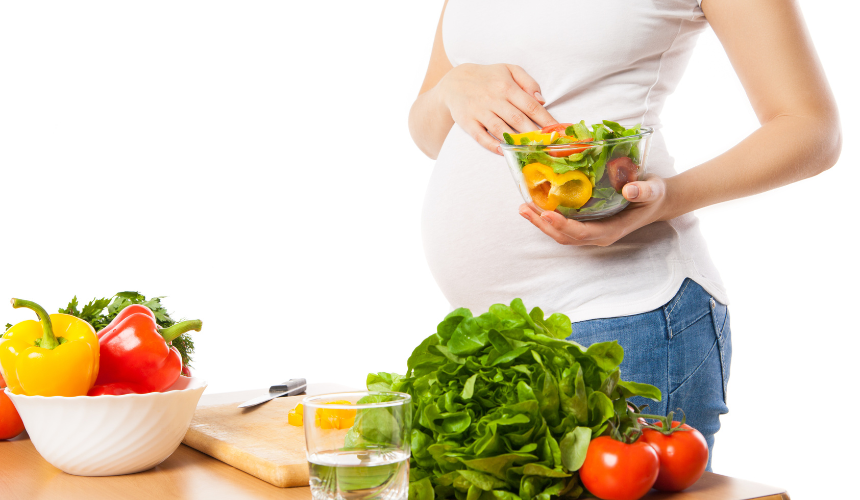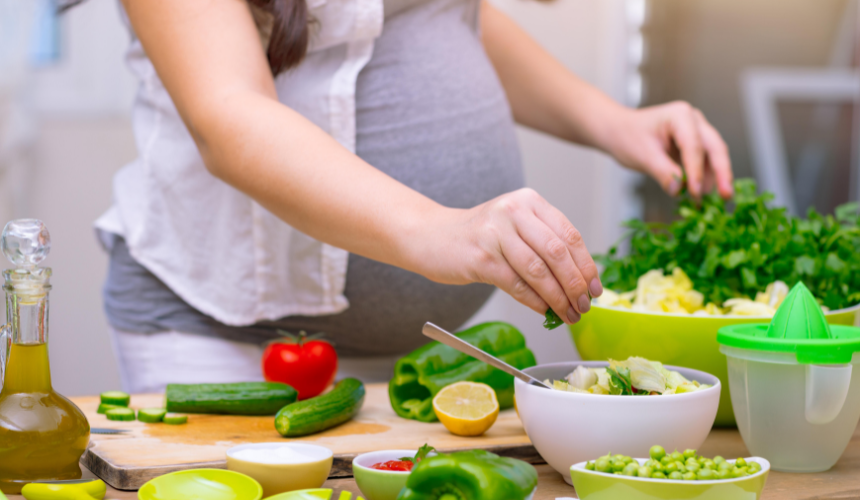Author: Dr. Nirmala M MBBS, MS
Consultant: Obstetrician, Gynecologist & Fertility Specialist at Motherhood Hospital Whitefield, Bangalore
There is a rainbow of fruits and vegetables that offer several health benefits! Fruits and vegetables get their colours from phytochemicals and may help to prevent chronic diseases such as heart disease, high blood pressure, and type 2 diabetes.
Additionally, the colours of the fruits and vegetables we eat can hint at their nutritional value. For example, dark leafy greens are a good source of folate. At the same time, red and orange fruits and vegetables are often a good source of Vitamin A. Eating a rainbow of colourful fruits and vegetables can help provide vitamins, minerals, and other nutrients needed for a healthy, well-balanced diet such as antioxidants, Vitamin A, Vitamin C, potassium, and fibre.
Following are some factors that can affect your blood sugar levels. Include as many plant-based colours in your meals and snacks as possible to get started. Each colour provides various health benefits, and no colour is superior to another, so a balance of all colours is most important. Getting the most phytonutrients also means eating colourful skins, the richest sources of phytonutrients, and paler flesh.
Avoid peeling foods like apples, peaches and eggplant, lest you lose their most concentrated source of beneficial chemicals. When we eat plant foods, phytonutrients protect us from chronic diseases. Phytonutrients have potentanti-cancer and anti-heart disease effects. And epidemiological research suggests that food patterns that include fruits and vegetables are associated with a reduced risk of many chronic diseases, including cardiovascular disease, and may be protective against certain types of cancers. Listed below are some examples of fruits and vegetables that fall into the five main colour groups:
Red: Strawberries, blood oranges, grapefruit, cranberries, watermelon, red apples, raspberries, cherries, tomatoes, pomegranate, red grapes, beets, red peppers, radishes, red onions, tomatoes, rhubarb.
Yellow/Orange: Lemon, pineapples, mangoes, corn, oranges, persimmons, nectarines, tangerines, apricots, papayas, cantaloupe, peaches, carrots, butternut squash, pumpkin, yellow summer squash, sweet potatoes, and yams.
White: White nectarines, white peaches, bananas, cauliflower, garlic, ginger, mushrooms, onions, parsnips, potatoes, turnips and white corn.
Green: Pears, green apples, limes, avocados, honeydew, kiwis, green grapes, broccoli, artichokes, arugula, asparagus, brussels sprouts, green beans, cabbage, celery, cucumbers, lettuce, green onions, okra, peas, green peppers, snow peas, spinach, and zucchini.
Blue/Purple: Purple grapes, blackberries, plums, blueberries, boysenberries, raisins, eggplant, and purple cabbage.
Get closer to eating a rainbow of fruits and vegetables by trying something new from the suggested list in your next meal or snack.
Although many experts differ on what food is the most nutritious or has the most antioxidants and disease-fighting capabilities, eating a well-balanced diet with various fruits and vegetables is essential. Regular exercise, portion control, and getting your daily dose of these ‘superfoods’ can help keep you in tip-top shape and ready for the warm weather that lies ahead.
At Motherhood Hospitals we have a team of experienced supers specialists backed by the latest infrastructure and facilities. We have the best gynaecologist in Kharghar,Mumbai. We are experts in handling complex deliveries, gynaecological, and other surgeries, including various laparoscopic surgeries.
Do make an appointment with the best maternity hospital in Kharghar, Mumbai at a centre closest to you. Meet with our doctors, who will carry out the required investigations, diagnose the issue and recommend the most appropriate treatment, enabling you to lead an active life.
If you wish to get in touch with Dt. Arti Singh, please book your appointment here.


 Toll Free Number
Toll Free Number


















